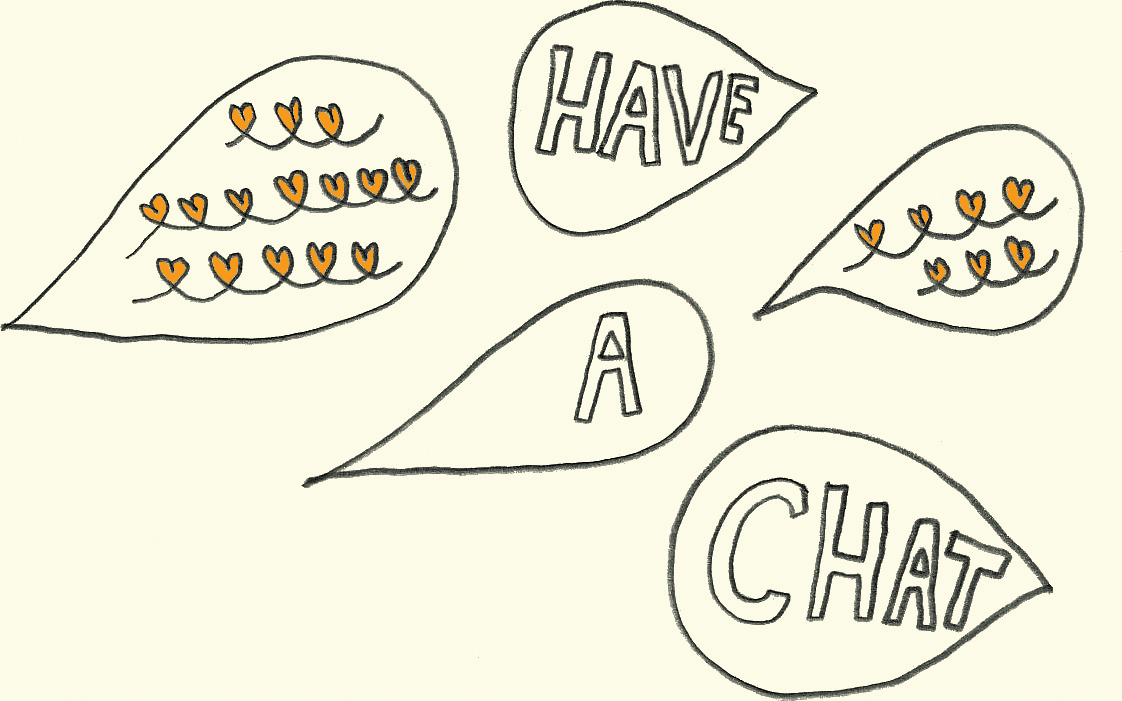
One thing lockdown taught us all was how much of a difference a conversation can make. Just saying hello and asking someone how they are can be all it takes to lift someone’s day and show them you see them and care.
Taking it a bit further, what would it look like if we used our compassion to guide our conversations?
In the same spirit, warm, open conversations filled with curiosity can help us to think about displacement and migration in new ways.
There are a million and one ways to have a chat – so here are some ideas to get you started:
- Say hello to someone new in your neighbourhood, workplace, school or community. Ask how they’re doing. Lament or celebrate the weather. It might just make their day!
- Ask someone what compassion means to them? Tell them about the most compassionate person you know, and what qualities make them compassionate.
- We all have a story of migration whether that’s directly or indirectly. Whether that migration has taken our families across land or oceans. Tell someone about where your story began.
- Start a conversation with a friend or family member about what it means to be a refugee. Share your experiences, listen to theirs and discover which values you both share. If you’re not sure where to start, take a look at the resources below.
- Hold a ‘conversation café’ as part of your Refugee Week event – the resource below has some menu ideas to help you.
Helpful resources
- Changing the Conversation: A Messaging Guide by Freedom From Torture
- Our Media Toolkit: Creating messages and stories by IMIX (especially p5)
- Wellbeing Conversations: Activities and approaches to creating safe, reflective spaces by The Visionaries
- Conversation Cafe – Women’s Institute
Whether you’re having a one-to-one conversation or facilitating a group discussion, don’t forget to be sensitive to others’ experiences and respect their boundaries about what they want to share.
Share photos or reflections on your conversations on social media using using these hashtags #SimpleActs #CompassionIntoAction #RefugeeWeek
If your social media post includes images or names of other people, make sure you get permission first, including from parents/ guardians of anyone under 18.
